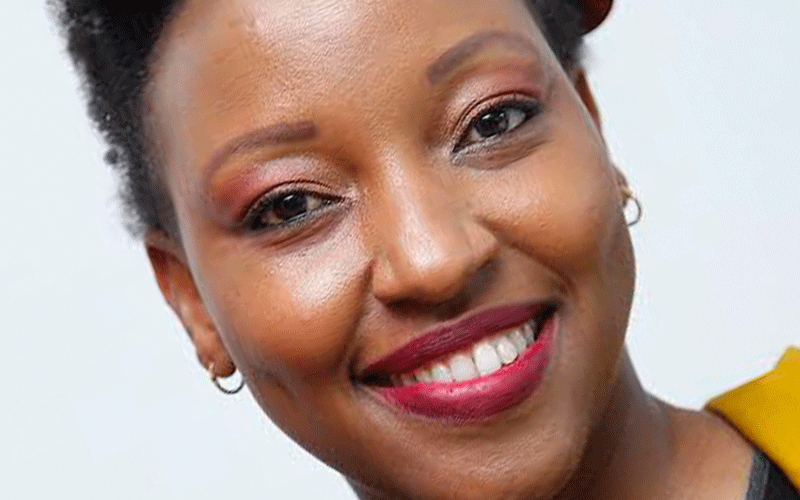Aiming at buildings that ‘breath’ zero carbon by 2050

Built environment professionals in Kenya are calling for fastracking of The Paris Climate Agreement global goal to reach net-zero emissions by 2050,
The Kenya Green Building Society (KGBS) urged the government and other stakeholders in the building sector to prioritise net-zero buildings (structures that are positively impacting on the environment, for communities, the planet and economies) and deliver the emissions reductions required from the construction and property sectors.
Buildings account for more than one-third (39 per cent) of global carbon emissions to the environment.
Elizabeth Chege, KGBS chairperson says the society envisages that, by 2030, all new buildings, infrastructure and renovations will have at least 40 per cent less embodied carbon with significant upfront carbon reduction, and all new buildings must be net-zero operational carbon in the next three decades.
“The discussion around net -zero buildings is actually a response to the climate emergency.
We have a climate crisis,” said Elizabeth during the KGBS Annual Green Building virtual conference held on Wednesday.
The concept is premised on several principles that ensure safe and healthy habitats and sustainable use of resources.
They include consideration of the thermal envelope – the building itself and reducing the demand for energy by using passive design and natural ventilation.
“If you don’t need air conditioning, you don’t need huge power loads connected to your building,” she said.
The concept also calls for the use of renewable energy and the use of efficient fixtures.

Photo/PD/JOSEPH MAINA
Free energy, such as solar energy, should be considered. “At this point in time in Kenya, we are advocating for LED (Light-Emitting Diode) lighting and new technologies coming up. With LED lighting we’ll be saving at least 20-40 per cent of our energy consumption through lighting,” she explained.
Elizabeth demystified the idea that net-zero buildings are for the elite saying that affordable housing must also meet the minimum standards.
The concept also calls for behavioural change even as the country adopts the green building philosophy.
“If we build green and we don’t measure performance of the sustainable building, we are not operating green, we’re wasting resources,” she posed.
This year’s World Green Building Week, which runs until tomorrow, has also seen KGBS launching the first-ever green materials and services directory, which will be circulated to the public to ease the process of sourcing for materials and services locally.
“All companies featured have undergone vetting. We have also pre-launched the health and well-being framework, which is set to be launched globally on November 4, this year, she said.
The conference, which was held in partnership with Konza Technopolis Development Authority (KoTDA), was themed Green Infrastructure and Urban Greening for Sustainable Cities and Communities.
KGBS has been active in its push for more environmentally sustainable buildings in the country, by, among others, advocacy and training.
This year’s global event is celebrated under the theme ‘Act on Climate’, with a call to action to building sector players, policymakers and governments around the world to take urgent action to ensure buildings are energy efficient and fully powered from on-site and off-site renewable energy sources.
Stakeholders in the conference also underscored the need to embrace climate-friendly initiatives in the built environment.
“We seek to spark the conversation and action within the construction industry to act on climate change and build momentum in the adoption of Net-zero carbon buildings for our Covid-19 recovery and beyond,” Jerome Ochieng, the Permanent Secretary in charge of ICT and Innovation in the Ministry of ICT said.
“We also wish to encourage the financial sector to be innovative and develop protocols that will spur investments in the green building industry,” he added.
The PS challenged the public to craft creative ways of greening the environment as part of the heritage for posterity.
“We can take the concept whereby we will be planting trees on our birthdays.
Instead of blowing the candles, every year, birthdays should be celebrated by planting trees equivalent to one’s age attained that year”.
Caroline Kariuki, of GreenPot Enterprises, espoused the properties of bamboo as a strong candidate for adoption as an alternative building material.
This is in addition to the plant’s economic potential. An acre of bamboo, Caroline said, can yield Sh434,000 ($4,000) annually for 40 years, while providing employment to five people in the value chain.
“The other good thing is that it cleans our waterways,” she said, in addition to the plant’s utility in the green building industry.
GreenPot is a pioneering bamboo company in Kenya, with operations ranging from large-scale nurseries to establishment of bamboo plantations. The company says plans to set up the country’s first commercial bamboo factory are in high gear.
The Covid-19 pandemic brought to the fore the quality of housing most people have to do with, particularly when stay-at-home requirements were put in place.
“We were told to stay safe, and stay at home,” Elizabeth said. “This is the time we realised how buildings impact our health,” she said in conclusion.







